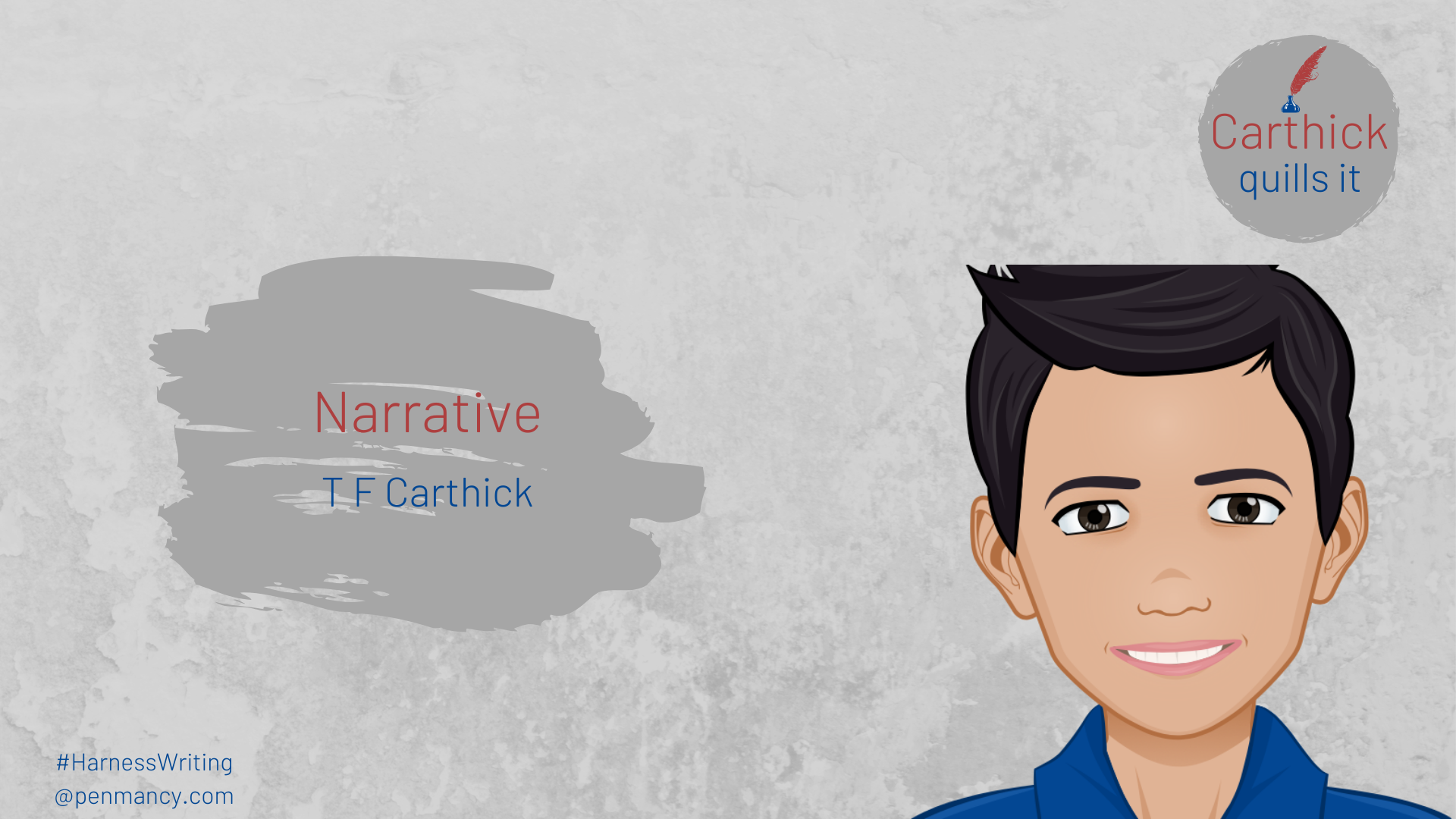
Now we come to one of the most interesting and important types of retelling – creating or changing the narrative. Please note – we are talking of narrative and not narration. Narrative is usually not a term we associate often with writing. It is used more often in relation to media and politics. We often hear how different groups are framing the narrative. So, what exactly is framing the narrative? It is something very fundamental to the human brain – the desire to make sense of the mad world. We want to fit all the information that we see or hear into a neat sequence of cause and effects. Anything that does not fit our narrative, we reject as anomaly. I am sure we would have done that as a child in our physics laboratory experiments. The actual points would never fit the curve predicted by the theoretical principle we are trying to prove. But we would just take the points that fit and draw the graph. There the objective is to please the teacher in class. In the real world the objective is to please the teacher within our head. I feel this same desire to make sense of events is what drives our love for fiction as well and a good fiction writer must cater to this desire. But most new fiction writers miss this. They just concoct some interesting events, describe vividly in lyrical language and create most realistic characters. But the overall story makes no sense. It is interesting to read the excerpts. It is interesting to read individual scenes describing the events. But as a whole the story makes no sense and hence it is not a satisfying read for most regular readers. Of course, there are hardcore readers of highbrow literary fiction whose expectations are different. But literary fiction also has an underlying narrative. Only it is expressed in more subtle, experimental ways compared to commercial fiction. So how does one go about changing the narrative. Let us again take the example of Harry Potter. What is the original narrative here? A young orphan boy struggles against all adversity to defeat the fascists trying to take control of the Wizarding World. It is basically a story of hope, a story of victory of good over evil with fascism defined as the face of evil. Now if we want to change the narrative, we have multiple options. One of the themes could be the need for humanity to believe in magic. Where magic is a stand in for creativity and imagination. And the story could be about how the consumerist culture with its glorification of the mundane and mediocre is subsuming this magic. If that is the narrative we want to cast, we would focus more on Harry’s life with Dursleys – at least half the book. The remaining half would be about Harry’s exciting adventures at Hogwarts and one would continuously switch between the two to bring out the contrast. The story would be that of self-discovery where the events in the magical world could be a metaphor for events in the non-magical world and story could end with Harry using the lessons he has learnt in the magical world to emerge triumphant in the non-magical world as well. While we will still have Voldemort and the Death Eaters we would not dwell deep into their characters. They would just be cardboard cutouts to represent the obstacles Harry has to overcome using his magic. Another narrative could be that of romance. The story of the relationship between a highly intelligent and competent woman like Hermione and a mediocre person like Ron and that between a celebrity like Harry and a low-profile person like Ginny. In that case most of the story would focus on the psyche of the four characters. All the events including the battle against Voldemort would just serve as backdrop to showcase the psyche of the four of them and bring out their feelings for each other. Story would focus on each of their needs and insecurities and how each of them finds fulfilment in their respective partners. The lover’s quarrels between them would be dwelt upon at greater length than the adventures and the fights. A third narrative could just be one of pure heroism and victory against tough opponents through exercise of will power like say a simple revenge tale like the Wild West stories. In that case, one won’t focus too much on character portrayal, but the story would just go from adventure to adventure, fight to fight with baddies getting meaner and meaner as the story progresses with the story culminating in a final showdown with Voldemort like with the badass boss monster in final level in computer games. So, depending on what is the story one wants to tell, one must decide which events to include, which to exclude, how do you sequence the events in the narration, which events to rush through and which ones to elaborate etc. In some ways the narrative one chooses kind of defines the genre as well. So, one can change even change the genre and bring a story from a different genre into the one that you like to write. So that concludes my series on retelling. Keep writing and do check out my books Carthick’s Unfairy Tales and More Unfairy Tales to see how I have applied these techniques to retell popular fairy tales. _____ ______
